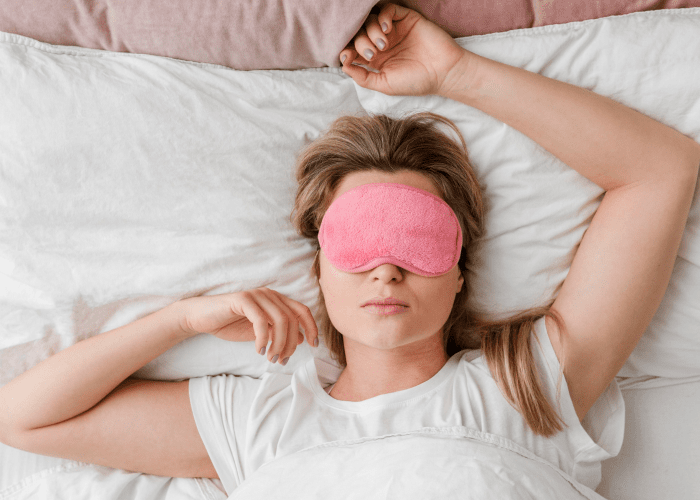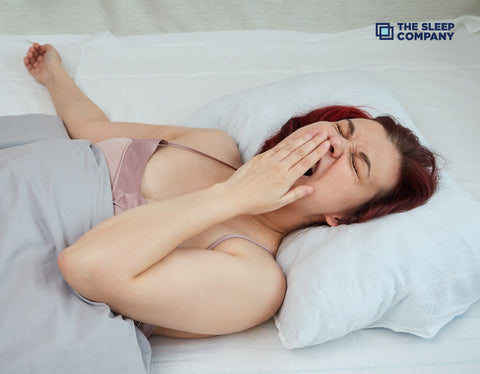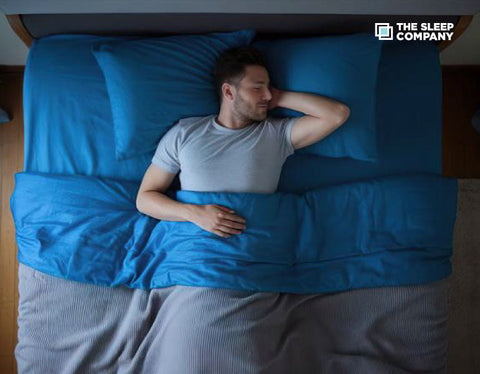My Cart

The Science of Sleep: What Happens When You Sleep


Ever wondered why we sleep? Sleep is an inevitable part of our lifestyle but only a few people do. Sleep is something many of us find hard to achieve sometimes. In fact, around a third of adults struggle with sleep at least once a week. Learning about the science of sleep can give us some ideas to try and make sleep come a little easier.
Why do we need Sleep?
There are lots of different theories when it comes to the ‘WHY’ of Sleep. A combination of these theories is the most likely explanation. Exploring what happens when we’re sleep-deprived is a good way of identifying the ‘Why’ of Sleep. Unfortunately, long-term sleep deprivation is a risk factor for obesity, diabetes, high blood pressure, heart disease, strokes, mental illness, poor memory, focus, and concentration, clumsiness, and a weakened immune system.
Cognitively, we could notice that our reactions lag and our ideas get disorganized after a terrible sleep. Thinking, paying attention, and maintaining our mood is challenging. The fact that regions of our brain stay dormant while we are awake when we are sleep deprived is one of the causes of these challenges.
What happens to our mind when we sleep?

When we’re asleep, our brain’s waste-clearance system clears out waste from our central nervous system and toxic by-products that have built up in our brain over the day. This is important because it helps our brain to work well when we’re awake. Our nerve cells exchange information and organize themselves. This encourages normal brain activity.
Our brain can transfer knowledge from working memory, also known as short-term memory to our longer-term memory while we sleep. This only applies to information that it deems necessary. Unneeded details are forgotten. A crucial component of our memory and capacity to learn new information is this process. It is simpler for the brain to learn, remember, solve problems, be creative, make decisions, focus, and concentrate when it is well-rested.
What happens to our body when we sleep?

Our bodies are active while we are sleeping. It produces new tissue, regenerates muscles, replenishes energy, and creates proteins. Lack of sleep may lead to weight gain. This is due to a drop in our “hunger hormones” while we are sleeping. These hormones can become imbalanced if we don’t get enough sleep. We may unknowingly overeat as a result of our elevated levels of hunger and suppression of our feelings.
A hormone called insulin regulates the amount of glucose in our cells. Healthy cells readily absorb glucose (sugar). We use less glucose while we are sleeping. Maintaining the health of our cells, enables our body to regulate the total levels of blood glucose, so preventing insulin resistance.
“Cytokines” are proteins that our bodies produce when we’re sleeping. These proteins assist our body fight illness by producing antibodies and immune cells. This is one of the reasons we require more sleep when we are anxious or ill.
Sleep is important for our heart health, too. Weight gain and insulin resistance are risk factors for heart disease. As is high blood pressure – which is made worse by lack of sleep, because our blood pressure reduces when we’re asleep. Cortisol is a hormone that’s released when we’re awake. High levels of cortisol are a further risk factor for heart disease. Overall, sleep plays a vital part in maintaining a healthy heart.
Stages of Sleep

We go through a four-stage sleep cycle each night. A full cycle lasts 90-120 minutes. We repeat it multiple times a night. The first three stages class as ‘Non-Rapid Eye Movement (NREM) sleep, while the fourth is Rapid Eye Movement (REM) sleep.
Stage 1: This NREM stage lasts for several minutes. Our sleep is light, muscles begin to relax, heart rate and breathing start to slow, eye movements reduce and brain waves slow down.
Stage 2: This NREM stage is, overall, the longest stage. We fall into a deeper sleep, our heart rate and breathing slow, muscles relax further, temperature drops, and eye movements stop. There are moments of high-frequency electrical activity within our brain, but other than that our brain waves continue to slow.
Stage 3: The final NREM stage is initially longer than stage 2, but decreases in length as the night goes on. Our heart rate, breathing, and brain wave activity slow to their lowest level, and our muscles become as relaxed as they can be. It’s also a restorative stage. Our body repairs cells, tissues, and muscles, and restores our energy levels.
Stage 4: This is our only REM stage. It gets longer as the night goes on. Our heart rate, blood pressure, and breathing all begin to increase again. Though our eyes stay closed, they flit back and forth rapidly. We might dream, though our arms and legs will remain paralyzed so we can’t act on our dreams. During this stage, our memories are consolidated. Important things move from our working (short-term) memory to our longer-term memory.
Sleep and Mood
Sleep and mood are intertwined. We are more likely to lose our temper when we are exhausted. We have trouble thinking, which makes it challenging to apply good coping mechanisms for life’s ups and downs.
Our brain’s emotional regulation centres become more active while we sleep, which makes it easier for us to handle and process challenging circumstances. We can handle challenging situations better when we are well-rested.
Poor sleep can contribute to the onset progression of poor mental health. It can also be a relapse trigger. Our mental health can affect our sleep, too. During wonky mental health times, we often find it harder to sleep or sleep excessively. Coping with an unwell brain is a tiring business, and we often need more sleep during particularly anxious or ‘low’ times.
How to Sleep Well?
Are you fed up with spending wakeful hours? Get done with this; let us tell you the art of sleeping peacefully. Here are some tips:
1. Good Sleeping Posture
A good sleeping posture is essential to enjoy your sleep and heal throughout the night. While you sleep, your muscles and ligaments relax and heal. If you sleep in the correct posture, it protects your back and allows it to heal well while making you feel relaxed and doze off soon. Many sleep experts recommend to try an orthopaedic mattress for back pain. For better sleep at night, buy orthopedic mattress online.
2. Right Mattress
When you start sleeping in the proper posture, it shows positive changes in your body. However, it won’t be fruitful if you rest your body on a poor surface. If you understand your sleeping needs, it helps you wake up pain-free and well-rested. If you’re looking for the best mattress, buy mattress online that provides you enough support and comfort for better sleep.
An age-old and saggy mattress gives uneven comfort to your body, so choose it wisely. A good mattress is what caters to your individual sleeping needs. If you don’t know the best mattress for you, consult your doctor because that would be good to aid your back pain. Ensure you buy king size mattress online that supports the natural curve of your spine and feels comfortable at night with enough space.
3. Right Pillow
Likewise, your body needs the proper comfort, and your head and neck also deserve the right pillow to keep them in the proper alignment. If you love sleeping on a high pillow, it can cause muscle strain on your neck and shoulders, while a low one won’t offer the proper comfort and a relaxed posture. Buy pillow online and give a comfy treat to your head and neck for even more comfortable sleep.
Usually, people are advised to sleep without a pillow for maximum comfort. You can get a medium-firm pillow to keep your neck aligned with the chest and lower back. Your pillow must promote all your sleeping positions with supreme comfort. You can consider switching it every couple of years and get a good night’s slumber.





























































